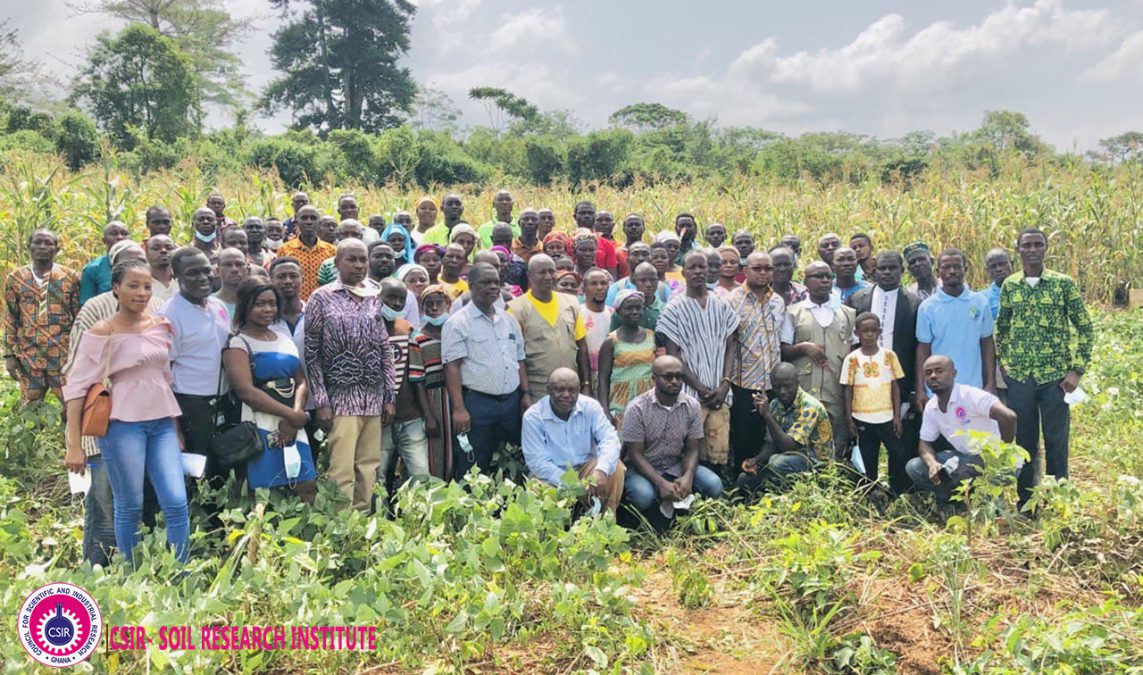CSIR-SRI INTRODUCES SOIL FERTILITY TECHNOLOGIES TO BOOST MAIZE PRODUCTION


CSIR- Soil Research Institute (SRI) at Kwadaso, Kumasi has introduced to farmers at Gyampokrom near Sefwi Wiawso in the Western North Region a new soil fertility technology that increases maize production to support the government flagship programme of planting for food and jobs. This new technology will help address the fast decline in soil fertility and it includes, Bio char, Organic fertilizer (poultry manure compost) and Mineral fertilizer.
Famers were taken through demonstration exercises on some soil fertility management practices on how to apply organic and inorganic fertilizers. About 400 maize farmers from farming communities, including Abonse, Gyampokrom, Sefwi-Asafo, Sefwi Wiawso, Bodi etc. took part in the demonstration exercise.
The Soil Research Institute is introducing appropriate soil fertility and water management technologies to improve agricultural sustainability in Ghana. The project was supported by the government of Canada through the Modernizing Agriculture in Ghana (MAG) programme and the CSIR-Soil Research Institute (SRI) in Kumasi.
Maize production of Ghana improved from 384,000 tons in 1971 to 3,000 thousand tons in 2020. This average annual growth rate represents 8.79 per cent. Despite these efforts, the average maize yield in Ghana remains one of the lowest in the world, much lower than the average for Africa south of the Sahara, hence the introduction of these new technologies.
Mr Ebenezer Tei Kwannor, the assistant director of agriculture for Sefwi Wiawso, who represented the municipal chief executive officer, explained that, the program was borne out of governments committed to boost the agricultural sector and tackle unemployment.
Other speakers at the field day were Mr Padlass Edeafour, the scientific secretary, spoke for the acting Director of Soil Research Institute (SRI) and the Chief of Gyampokrom, Nana Yaw Kumi.